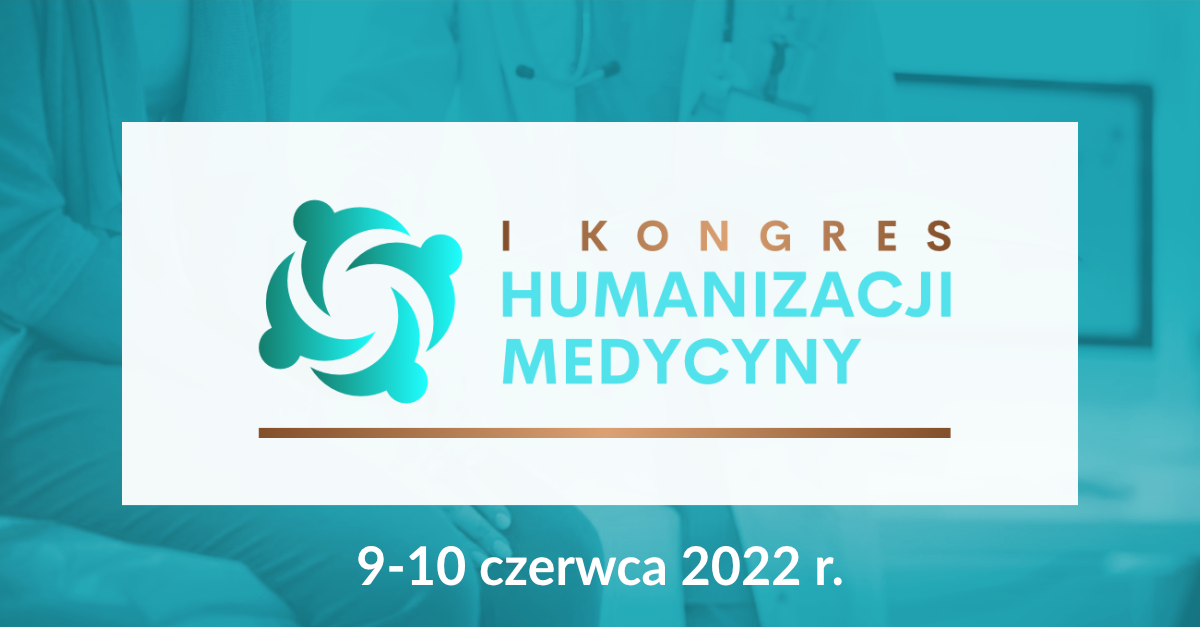Seeing the man - Congress on the Humanisation of Medicine
The COVID-19 pandemic highlighted the need for a sense of shared responsibility for the patient in the treatment process, and thus presented the medical community and patients with entirely new challenges. Isolation, the inability of family to visit patients, and the stress of medical staff undoubtedly demonstrated the need for effective communication with patients.
Bearing in mind the need to improve communication with the patient and to counteract dehumanisation in its broadest sense, the University of Warsaw, commissioned by the Minister of Health, conducted a study to assess the degree of humanisation of medicine in terms of medical professions, therapeutic teams, with particular emphasis on patient-doctor relations. In addition, the project assessed the impact of the state of epidemic threat and associated with the spread of the SARS-CoV-2 virus on these relationships.
The project covered 100 healthcare institutions. The survey was conducted in five groups of health professions: doctors, nurses, paramedics and other medical and non-medical staff, as well as in two groups of patients. As part of the analyses conducted in the above groups, the study also took into account the family context and other personal characteristics of the respondents, strongly emphasising the context of the impact of the pandemic. The results of the study will be presented during the Congress for the Humanisation of Medicine, dedicated to the dissemination of the idea of humanism, which will take place on 9-10 June this year at the University of Warsaw.
- The effectiveness of the treatment process depends primarily on the therapy implemented, but we must not forget the relationship between doctor and patient. The focus should be on the patient and his or her relatives. Good communication and mutual respect are key here. Eliminating physical ailments is one thing, taking care of the psychological sphere through appropriate contact is another aspect. The patient's feeling that the doctor feels responsible for him and genuinely wants to help him is important in his recovery. - says Adam Niedzielski, Minister of Health.
During this difficult period, associated with both the pandemic and the ongoing war in Ukraine, medical staff became convinced of the importance of proper relationships between medical teams and patients. This time further highlighted the fundamental role of communication between patients and the medical community, demonstrating the important role of the idea of humanising medicine, always recognising the well-being of human beings, their dignity, rights and autonomy as the highest value.
- In an era of dynamic development of innovative therapies, the patient-doctor relationship is disrupted. Introducing the humanisation of medicine into medical science is one of the most important non-medical aspects of improving the quality and prolonging the life of patients. Particularly now that we are seeing the development of artificial intelligence or telemedicine, we must make every effort to ensure that the welfare of the patient is paramount and that the patient is always at the centre of everything we do. - emphasises the President of the Medical Research Agency, Radosław Sierpiński, MD, PhD.
One of the objectives of the Congress is to address the need for communication in health care. This topic is particularly important in the current situation where these relationships may be even more difficult. The Congress for the Humanisation of Medicine will address not only communication issues, but also the broader aspect of human relations and the role of professionals and patient organisations in improving the quality of healthcare services and patient safety. The issue will be presented interdisciplinarily addressing organisational, ethical and psychosocial issues.
- In Polish conditions, talking about issues of doctor-patient relations is not a new initiative. The humanisation of medicine is treated as something more than clinical communication, and this idea was promoted by the great advocate of the humanisation of medicine and the philosophy of peace, Prof. Kazimierz Imielinski, through the establishment and activities of the The Polish Academy of Medicine and the Albert Schweitzer World Academy of Medicine - emphasises Professor Zbigniew Izdebski of the University of Warsaw, Chairman of the Scientific Committee of the Congress for the Humanisation of Medicine.
The congress will be related to the dissemination of the idea of humanism. An attempt will be made to identify the weaknesses and strengths of the implementation of the idea of humanism from the perspective of health care unit employees and patients, also taking into account the role of student and postgraduate education. The congress is addressed to health care professionals, academics, ethicists, students of medicine, health sciences, humanities and social sciences, non-governmental organisations representing patients, health journalists and hospital directors and managers. The congress will also be attended by rectors and deans of faculties educating students in medical disciplines.
Participation in the Congress is free of charge and requires pre-registration. More information about the event, including the registration form, can be found at: https://www.kongreshumanizacjamedycyny.pl/

